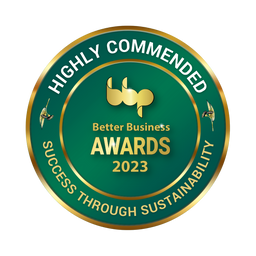Are you looking to make a positive change towards a more sustainable lifestyle? It's easier than you might think! By implementing some simple tips and adjustments into your daily routine, you can begin your journey towards living more sustainably. Whether it's reducing waste, conserving energy, or making eco-friendly choices, there are plenty of small steps you can take to make a big difference for the planet.

Why Should You Learn About Being More Sustainable?
Understanding the importance of learning how to be more sustainable is crucial for making informed decisions that benefit both the environment and future generations. Here are some compelling reasons why embracing sustainability is essential:
- Protecting the Environment: By adopting sustainable practices, you can help preserve natural resources, reduce pollution, and protect ecosystems. This ensures a healthier planet for current and future generations to enjoy.
- Conserving Resources: Embracing sustainability helps conserve finite resources such as water, energy, and raw materials. By using resources more efficiently and reducing waste, we can ensure their availability for future generations.
- Combatting Climate Change: Sustainable practices play a crucial role in mitigating climate change by reducing greenhouse gas emissions and promoting renewable energy sources. By taking steps to reduce our carbon footprint, we can help slow the pace of global warming and its adverse effects on the planet.
- Promoting Economic Stability: Sustainable practices can contribute to economic stability by creating green jobs, supporting local businesses, and reducing dependence on fossil fuels. Investing in renewable energy and sustainable industries can also stimulate economic growth and innovation.
- Improving Health and Well-being: Many sustainable practices, such as eating a plant-based diet, reducing exposure to harmful chemicals, and spending time in nature, have positive impacts on human health and well-being. By prioritizing sustainability, we can create healthier environments and communities for everyone.
- Preserving Biodiversity: Sustainable practices help protect biodiversity by preserving habitats, conserving endangered species, and promoting ecological balance. By safeguarding ecosystems and their inhabitants, we can maintain the resilience and diversity of life on Earth.
- Fostering Social Equity: Sustainable development prioritizes social equity and justice by ensuring that all individuals have access to clean air, water, and resources. By addressing issues of poverty, inequality, and environmental justice, we can create more inclusive and resilient communities.
- Setting a Positive Example: Learning how to be more sustainable sets a positive example for others to follow. By demonstrating our commitment to environmental stewardship and responsible living, we inspire others to take action and contribute to positive change.
Tips For Sustainable Lifestyle
Living a sustainable lifestyle doesn't have to be complicated. In fact, there are plenty of simple steps you can take to start making a positive impact on the environment. Here are some easy tips to help you begin your journey towards a more sustainable way of living:
- Reduce, Reuse, Recycle: Start by reducing your consumption of single-use items like plastic bags and water bottles. Instead, opt for reusable alternatives and recycle whenever possible.
- Conserve Energy: Be mindful of your energy usage at home by turning off lights and appliances when they're not in use. Consider switching to energy-efficient light bulbs and appliances to save even more energy and money.
- Cut Back on Water Usage: Conserving water is another important aspect of living sustainably. Take shorter showers, fix leaky faucets, and consider installing water-saving devices in your home.
- Shop Responsibly: When shopping for groceries and other items, choose products that are locally sourced, organic, and sustainably produced. Look for eco-friendly packaging and avoid products with excessive packaging whenever possible.
- Eat More Plant-Based Meals: Incorporating more plant-based foods into your diet can have a significant impact on the environment. Try to incorporate meatless meals into your weekly menu and opt for locally grown produce whenever possible.
- Support Sustainable Brands: When shopping for clothing, household goods, and other items, look for brands that prioritize sustainability and ethical practices. Consider buying second-hand or vintage items as well to reduce waste.
- Reduce Your Carbon Footprint: Consider alternatives to driving, such as walking, biking, carpooling, or using public transportation whenever possible. You can also offset your carbon footprint by planting trees or supporting renewable energy projects.
- Embrace Minimalism: Declutter your home and life by getting rid of items you no longer need or use. Focus on buying only what you truly need and value, and avoid unnecessary purchases that contribute to waste and consumption.
- Grow Your Own Food: If you have the space, consider starting a small garden to grow your own fruits, vegetables, and herbs. Not only is gardening a rewarding and enjoyable hobby, but it also reduces your reliance on store-bought produce.
- Educate Yourself and Others: Take the time to educate yourself about environmental issues and share what you learn with others. By raising awareness and inspiring change in your community, you can help create a more sustainable future for all.
In conclusion, embracing a sustainable lifestyle doesn't have to be overwhelming. By incorporating these simple tips into your daily routine, you can contribute to a healthier planet and inspire others to do the same. Remember, every small action counts, and together, we can make a meaningful impact on the environment for future generations to enjoy. So, why wait? Start your sustainable journey today and be part of the solution for a greener, more sustainable world.
Also read: 5 Suggestions for Creating a Sustainable Wardrobe




